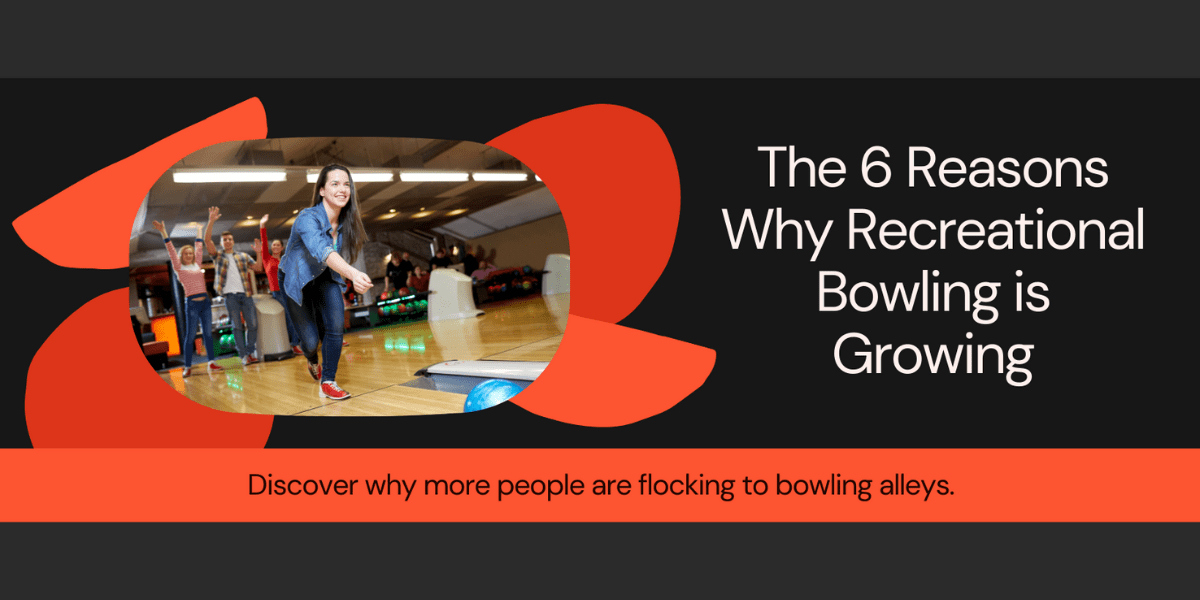Bowling News, Editorials
6 Reasons Why Recreational Bowling is Growing
6 Reasons Why Recreational Bowling is Growing
In a world where hobbies and pastimes are as diverse as they are niche, there are few activities that stand the test of time with as much casual appeal as recreational bowling. Stepping into a bowling alley, with its neon lights and clamor of falling pins, has become more than just a throwback to the 1950s; it’s a modern, vibrant social experience. As the bowling industry enjoys a resurgence, it’s not just the seasoned pros returning to the game – a new generation is lacing up those bowling shoes and rolling into the lanes. Here are six compelling reasons why recreational bowling is finding a place in the hearts and schedules of a growing audience.
1. Social Engagement
For many, the bowling alley is a modern-day village square, a place where friends, family, and colleagues can convene and socialize. The nature of the sport, with its turn-based, intermittent gameplay, leaves ample room for conversation and bonding. It’s an activity that accommodates large and small groups, extroverts and introverts, making it a democratized social hub that’s hard to replicate elsewhere.
2. Affordable Entertainment
In an era rife with expensive entertainment options, recreational bowling provides exceptional value. With reasonable pricing and often inclusive deals, it’s accessible to a wide range of income brackets. Unlike major league sports or hit Broadway shows, where tickets can cost a pretty penny, a game of bowling is an affordable outing that doesn’t downgrade the fun factor.
3. All-Weather Activity
One of the most enticing features of bowling is its all-weather nature. Rain or shine, bowlers can count on a consistent playing field. This reliability makes it an ideal activity year-round, helping bowling alleys to thrive while seasonal businesses might struggle. It’s a comforting thought for people looking to escape the unpredictability of the elements.
4. Family-Friendly Atmosphere
In a world where finding a shared activity that appeals to all ages can be challenging, bowling alley cater to the whole family. Here, three generations can battle it out for bragging rights, fostering a shared experience that is as much about family fun as friendly competition. The alleys’ focus on inclusivity and entertainment ensure that no child, teenager, adult, or senior feels left out.
5. Health Benefits
Surprisingly, recreational bowling is a healthier pastime than many realize. While it might not seem as strenuous as, say, a workout at the gym, it still encourages movement. The act of throwing a bowling ball, with its care to technique and weight, is a form of resistance training that can improve strength and coordination. It’s a subtle but real fitness boost that complements its fun factor.
6. Accessibility and Inclusivity
With the widespread availability of bowling alleys and the ease of learning the basics, bowling is an accessible sport. This inclusivity invites people with disabilities or those who may feel marginalized at other sports to participate fully. Specialized equipment and adapted rules mean that everyone can enjoy the game on an equal footing, a testament to the sport’s universal appeal.
In conclusion, as the social fabric calls for shared experiences and affordable entertainment, recreational bowling seems to be the perfect match. Its versatility in terms of social engagement, its capacity to entertain across generations, and its commitment to inclusivity and health make it a winning pastime for a diverse audience. The bowling alley is more than a fading cultural relic – it’s a vibrant, growing space that fosters social connections and joy. Whether you’re a beginner bowler or a seasoned pro, there’s never been a better time to step onto the lanes and roll with the resurgence of this classic sport.


























































You don’t give the reasons why it’s grown. All the factors you mention have always been there. You don’t site any studies. There’s no breakdown of groups by age, income, etc. How many new bowling alleys have been opened in the last 5 years? How many have closed?